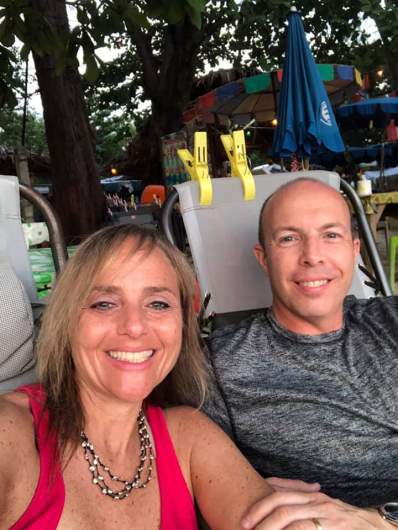
Massachusetts Judge Shelley M. Joseph has been indicted on a federal charge of obstruction of justice. Joseph is accused of preventing an ICE officer from taking custody of an undocumented immigrant after the immigrant appeared in her courtroom on state charges, the U.S. Attorney’s Office for the District of Massachusetts announced on April 25.
It was reported in December 2018 that a grand jury had been convened to investigate Joseph, 51. She was charged along with former trial court officer Wesley MacGregor. Joseph was charged with conspiracy to obstruct justice and two counts of obstruction of justice – aiding and abetting. MacGregor was also charged with perjury.
“This case is about the rule of law,” United States Attorney Andrew E. Lelling said in a statement. “The allegations in today’s indictment involve obstruction by a sitting judge, that is intentional interference with the enforcement of federal law, and that is a crime. We cannot pick and choose the federal laws we follow, or use our personal views to justify violating the law. Everyone in the justice system – not just judges, but law enforcement officers, prosecutors, and defense counsel – should be held to a higher standard. The people of Massachusetts expect that, just like they expect judges to be fair, impartial and to follow the law themselves.”
Governor Charlie Baker, who appointed Judge Joseph, previously said she should be removed from her position in the interim. He told reporters outside the statehouse on December 4, “I don’t believe she should be hearing criminal cases until that federal case is resolved.”
But Joseph had been hearing cases as recently as a day before the indictment was unsealed against her.
An agent with U.S. Immigration and Customs Enforcement was present in Newton District Court in Massachusetts on April 2, 2018. The agent was there to take Jose Medina-Perez into custody. Medina-Perez had been arrested on a drug charge. There was also an outstanding warrant against him for a drunk driving incident in Pennsylvania.
Joseph, Medina’s defense attorney, and the state prosecutor had a conversation about Medina-Perez’s situation during a sidebar. Judge Joseph is heard on the court recording “ICE is going to get him” before telling the clerk to shut it off. Later on, Medina-Perez was escorted to a back door to avoid the ICE agent.
Joseph faces up to 25 years in prison if convicted. She is scheduled to make her first appearance in federal court this afternoon. She and her attorney have not commented.
Here’s what you need to know.
1. The Judge, Defense Attorney & State Prosecutor Were Heard Discussing the Fact That an ICE Agent Was Going to Detain Jose Medina-Perez Before the Audio Was Shut Off; All Court Proceedings Are Required to be Recorded
At the heart of the reported grand jury investigation is a sidebar conversation that took place between Judge Joseph and the attorneys involved in Jose Medina-Perez’s case. The defense attorney was David Jellinek. The prosecutor was Shannon Jurgens, an Assistant District Attorney at the Middlesex District Attorney’s Office. Jurgens and Jellinek are not facing charges.
The Boston Globe obtained a copy of part of their conversation. The audio begins with Jurgens saying, ‘I don’t think it’s him.” Jellinek’s response is muffled except for the beginning, in which he says, “ICE is convinced that this guy…” He goes on to mention certain social media posts and that “my client denies that it’s him.”
Jellinek can then be heard saying, “ICE will pick him up if he walks out the front door. But I think the best thing for us to do is clear the fugitive issue and release him on personal…” The next part was not audible. The prosecutor responds by saying “I don’t think arguing with ICE is really my…” The last part of that sentence was not picked up on the recording.
Next, Joseph brings up the idea of continuing the case until the next day. Jurgens responds by saying, “There is a detainer attached to my paperwork. But I felt like that’s separate and apart from what my role is.”
Joseph is then heard saying, “ICE is going to get him.” The defense attorney asks if the clerk is recording their conversation. Judge Joseph asks her clerk to shut off the recording and allow them to go “off the record for a moment.”
According to a press release from the U.S. Attorney’s Office:
According to court documents, on March 30, 2018, Newton Police arrested and charged an alien defendant under Massachusetts General Law with being a fugitive from justice and narcotics possession. Further investigation revealed that the defendant had twice been deported from the United States – in 2003 and 2007, and that a federal order had been issued prohibiting the defendant from entering the U.S. until 2027. After learning of the defendant’s arrest, ICE issued a Federal Immigration Detainer and Warrant of Removal, which stated that the defendant was subject to removal from the United States. On April 2, 2018, Newton Police transferred custody of the defendant to Newton District Court (NDC), where Joseph was assigned as the District Court Judge and MacGregor as a Trial Court Officer, and forwarded the Detainer and Warrant.
At 9:30 a.m. on April 2, 2018, a plainclothes ICE officer was dispatched to NDC to execute the Warrant and take custody of the defendant following his release from NDC. The Officer announced his presence to Courthouse personnel, including Joseph, upon arrival. Prior to the afternoon session, the courtroom clerk – at Joseph’s direction – allegedly instructed the ICE Officer to leave the courtroom and wait outside in the lobby, stating that in the event that the defendant was released, it would be through the courtroom and into the lobby.
At 2:48 p.m. the case was called and the proceedings were captured on the courtroom’s audio recorder, as prescribed under the rules for all State District Courts. The audio recording captured Joseph, the defense attorney and the ADA speaking at side bar about the defendant and the ICE detainer. Joseph then allegedly ordered the courtroom clerk to “go off the record for a moment.” For the next 52 seconds, the courtroom audio recorder was turned off, in violation of the District Court rules. At 2:51 p.m., the recorder was turned back on, and Joseph indicated her intent to release the defendant. According to the charging documents, the defense attorney asked to speak with the defendant downstairs and Joseph responded, “That’s fine. Of course.” When reminded by the clerk that an ICE Officer was in the courthouse, Joseph stated, “That’s fine. I’m not gonna allow them to come in here. But he’s been released on this.” Immediately following the proceeding, MacGregor allegedly escorted the defendant, his attorney and an interpreter downstairs to the lockup and used his security access card to open the rear sally-port exit and release the defendant at 3:01 p.m.
MacGregor was also charged with perjury for falsely testifying before a federal grand jury on July 12, 2018, that, prior to releasing the defendant from the sally-port exit, he was unaware that ICE agents were in the Courthouse and that there was a detainer for the defendant.
You can read the full indictment below:
2. Medina-Perez Was Released & Escorted Out of the Building Using a Back Entrance to Avoid Confronting the ICE Agent; He Was Arrested Again Later That Month

Judge Shelley Joseph and her husband.
Jose Medina-Perez was arrested on March 30 in Newton, Massachusetts, on drug possession charges, as reported by the Boston Globe. During his arrest, police discovered an outstanding warrant from Pennsylvania as well, for a drunk driving arrest. That’s where the fugitive designation came from.
In Judge Joseph’s courtroom a few days later, the prosecutor decided to drop the fugitive charge, claiming that the mugshot from Pennsylvania did not match the defendant. The drug charge was not severe enough to require Medina-Perez to continue to be held in custody. Therefore, the Newton District Court could release him.
However, according to sources cited by the newspaper, it appears that Judge Joseph and the defense attorney may have taken extra steps to help Medina-Perez get around the ICE agent who was waiting for him at the courthouse. Jellinek escorted his client downstairs. Judge Joseph also reportedly denied the ICE agent access to the detention area. Medina-Perez left the courthouse through a back door and reportedly climbed over a fence to get away.
He was not free for very long. Medina-Perez, who also goes by the names Oscar Manuel Peguero and Julio Alexis Rios, was arrested later that same month. His deportation case is reportedly pending. According to ICE, he is a native of the Dominican Republic and was deported in 2003 and 2007.
3. Newton, Massachusetts, Is a Sanctuary City & the State Supreme Court Ruled in 2017 That People Could Not Be Detained on Immigration Violations Alone
The City Council in Newton, Massachusetts voted in February 2017 to designate the community as a sanctuary city. The vote passed 16 to 1. Under the ruling, city officials were stating that local police would not help federal officials detain undocumented immigrants.
In 2017, the Massachusetts Supreme Judicial Court also ruled that law enforcement officials cannot detain someone based solely on their immigration status. That means that even if federal officials issue a detainer, local and state police cannot hold that person unless they are facing criminal charges.
The high court’s ruling was based on a case called Sreynuon Lunn vs. Commonwealth. You can read through the entire case report, which is embedded above. The defendant, Sreynuon Lunn, was arrested on suspicion of robbery but the charge was later dropped.
ICE requested that local police detain him even after the robbery charge was dismissed because he was reportedly an undocumented immigrant from Cambodia. The Massachusetts Supreme Judicial Court ruled in the man’s favor, arguing that the state was not required to hold a person in custody based solely on their immigration status.
“When we as officers of the law are confronted with an abuse within our system, we take those allegations seriously. Any conduct which severs the underlying trust that the citizens of this Commonwealth place in those who hold positions of power and authority is a stain on all who swear an oath to protect and serve, with honor and integrity,” said Peter C. Fitzhugh, Special Agent in Charge, U.S. Immigration and Customs Enforcement Homeland Security Investigations (HSI) Boston. “The people of this country deserve nothing less than to know that their appointed and elected representatives are working on their behalf, while adhering to and enforcing the rule of law, not a personal agenda. The special agents of Homeland Security Investigations remain committed to upholding our promise to the public, without compromise.”
“The actions of the judge in this incident are a detriment to the rule of law and highly offensive to the law enforcement officers of ICE who swear an oath to uphold our nation’s immigration laws,” said Todd M. Lyons, Acting Field Office Director, U.S. Immigration and Customs Enforcement (ICE)’s Enforcement and Removal Operations, Boston. “In order for our criminal justice system to work fairly for all people, it must be protected against judicial officials who would seek to replace the implementation of our laws with their own ideological views or politically-driven agenda. I would also like to thank U.S. Attorney Lelling for his local leadership and his continuous and faithful support of the ERO law enforcement mission.”
4. State Officials Are Not Legally Required to Assist Federal Agents in Detaining Someone, But It’s Illegal to Interfere

Judge Shelley Joseph.
Under Massachusetts law, the ICE agent was within his rights to take Jose Medina-Perez into custody at the Newton District Court. In September of 2018, Justice Elspeth Cypher of the Massachusetts Supreme Judicial Court ruled on a case concerning this issue.
Groups including the Lawyers’ Committee for Civil Rights and Economic Justice had filed a petition to prevent federal agents from arresting immigrants at state courthouses. The idea behind the petition was that witnesses and victims would not appear for other cases out of fear that they could be suddenly detained.
Justice Cypher denied the petitioners’ request, meaning the case would not go before the full court. Her decision included the following explanation:
“The petition seeks a single, unprecedented, and exceedingly broad remedy – a writ of protection covering all undocumented immigrants and others who are subject to possible immigration consequences, for all of their current and future business in the Massachusetts courts, based on an ex parte record. For the reasons stated, I decline to report this matter to the full court as requested, and I decline to issue the writ. The full court would be in no better position than I am to issue such a broad and impractical writ in these circumstances. Accordingly, a judgment shall enter denying the petition.”
To circle back to the Newton District Court case, Judge Shelley Joseph was not obligated to help the ICE agent detain Jose Medina-Perez. But by denying him access to the lock-up area, she may have hindered the agent’s efforts. According to Massachusetts Trial Court guidelines, judges and other court staffers are prohibited from interfering when a federal official makes an arrest.
All court sessions are also required to be recorded. By telling the clerk to stop recording during the sidebar conversation with the attorneys, Judge Joseph may have crossed a line.
The field office director for ICE in Boston, Todd Lyons, issued a statement without specifically mentioning Judge Joseph. The statement read, “It would be gravely concerning to us, as well as disrespectful to the men and women of ICE who put themselves in harms’ way to protect our communities, if anyone, especially a representative of a court, were alleged to have taken deliberate actions to aid an immigration fugitive in evading the law.”
5. Judge Joseph Used to Work as a Defense Attorney in a Firm with Her Husband

FacebookJudge Shelley Joseph with her husband.
Shelley M. Richmond Joseph was appointed to the bench in September 2017. She previously worked alongside her husband, Scott Joseph at a law firm they founded together in 2003 called Joseph & Joseph. According to her official bio on Mass.gov, she specialized in “criminal defense, hearings before the registry of motor vehicles, and restraining orders.”
Joseph does have prior experience as a prosecutor as well. She worked as an Assistant District Attorney at the Suffolk County District Attorney’s Office in the Boston area during the 1990s. She also served as an Assistant Attorney General from 1993 through 2000.
Joseph earned a bachelor’s degree in political science from Boston College with a concentration in Spanish. She earned her law degree from the New England School of Law.